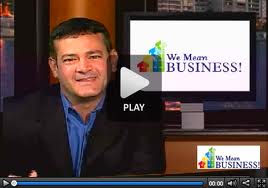He was coaching me and he didn’t even know it!
I thought he was the hired photographer but…
At the end of my seminar for a trade association last September, the guy who’d been taking photos all morning came over and introduced himself as Hersch Wellman. He said he was the region’s past president and wondered if I’d be willing to come and speak for its larger Eastern Zone meeting a few months later.
Toward the conclusion of our in-depth and engaging 30-minute chat, Hersch asked me a question I’d never heard posed quite this way. He asked, “So, what do you want people to get from your talks? What’s the message you’re hoping to impart?” In other words, “Why are you doing this?”
Seeing as the talk he’d just heard was on Leveraging Social Media for Business and I speak mainly on the topics of customer service, sales and leadership, I asked him to clarify which topic he was referring to. “All of them,” he replied. “What’s your ‘message’? What do you want people to get out of what you’re doing? … Do you need some time to think about it?”
By the time he was done asking, the answer hit me like a ton of bricks. [Read more…]


















